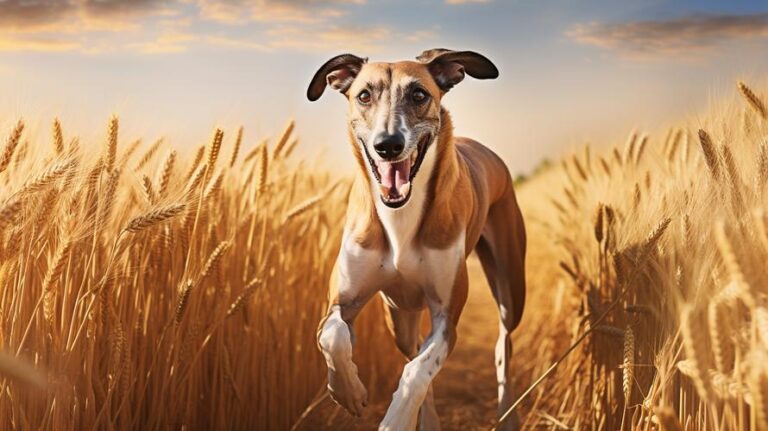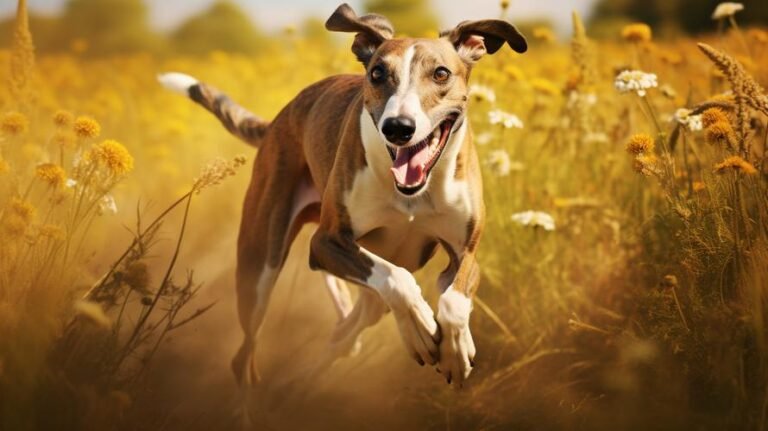Imagine a dog with a heart that beats like a champion racehorse, muscles that are fine-tuned like a sleek sports car, and the kind of elegant stride you’d expect from a top-tier runway model. Yes, we’re talking about the majestic Greyhound. Famous for their astounding speed and gentle demeanor, these dogs are the epitome of grace and athleticism. Have you ever stopped to think about what fuels these elite canine athletes?
What does it take to keep a Greyhound, whether a racing champion or a beloved pet, in tip-top shape? It’s not just about tossing any old kibble into a bowl and calling it a day. Greyhounds have unique dietary needs that must be met with precision if they’re to maintain their health and vitality.
Greyhounds, like all dogs, require a balanced diet. However, their lean bodies and fast metabolisms mean they need a careful blend of nutrients to sustain their energy levels and promote optimal health. It’s crucial to understand the specifics of what makes the perfect meal for these slender pooches.
One of the most fascinating aspects of a Greyhound’s diet is their need for a higher protein content compared to the average dog. Protein is integral for muscle repair, especially since Greyhounds are known for their sprinting prowess. High-quality animal protein sources such as chicken, beef, fish, and lamb should be at the top of the ingredient list in their special dog food. But remember, not all proteins are created equal. It’s essential that the protein is easily digestible and comes from good quality sources.
But protein alone isn’t enough. Fats are another crucial component. They provide a concentrated source of energy for these active dogs, keep their coats shiny and healthy, and support overall cellular structure. When looking for the ideal food for your Greyhound, seek out those that include wholesome fats like fish oil or flaxseed oil, which are packed with beneficial omega-3 fatty acids.
Next up, carbohydrates. Like the sprinter who needs his wholegrain pasta the night before a race, your Greyhound requires carbs for that quick-release energy. However, the type and quantity of carbs are where things get interesting. Simple sugars can lead to an energy crash, so complex carbohydrates from sources like sweet potatoes, brown rice, and vegetables are a smarter choice. They provide a slow and steady release of energy to keep your Greyhound running smoothly.
Let’s not forget about fiber. While Greyhounds aren’t foraging in the wild for roughage, fiber plays an essential role in their diet by promoting a healthy digestive system. The right amount can help prevent issues such as diarrhea, which can be common in this breed due to their sensitive stomachs.
Now, onto vitamins and minerals. Every world-class athlete needs a proper balance of vitamins and minerals, and Greyhounds are no different. Calcium for strong bones, iron for healthy blood, and a whole host of vitamins like A, E, and B complex are all integral to their health. These nutrients help support everything from energy production to immune health.
Another little-known tidbit about Greyhounds is that they tend to have higher rates of food sensitivities and allergies. This means that foods with common allergens like corn, soy, or wheat might cause more harm than good. Carefully chosen, hypoallergenic foods can prevent a lot of discomfort and ensure your Greyhound isn’t sidelined by digestive upsets or skin irritations.
So how much and how often should a Greyhound eat? They may be speed demons on the track but when it comes to mealtime, portion control is key. Overfeeding can easily lead to obesity, particularly in retired racers whose activity levels have decreased. Measuring out meals and dividing them into two or even three feedings a day can help maintain their ideal weight and support their fast metabolism.
With their unusual red blood cell count – higher than any other canine breed – Greyhounds have exceptional oxygen transport capabilities, which is part of what makes them such stellar runners. But here’s the interesting link back to diet: their food needs to support this blood profile. Foods rich in iron, like red meats or organ meats (in moderation), can help sustain their remarkable circulatory system.
What about supplements? For some Greyhounds, additional supplementation can be beneficial. For example, glucosamine can help support joint health, which is critical for a breed that’s prone to arthritis as they age. Always consult with your veterinarian before adding any supplements to your dog’s diet to ensure they’re necessary and given in the correct dosage.
Lastly, water. It might seem obvious, but hydration for a Greyhound is non-negotiable. With their muscular build and propensity for exercise, they need constant access to fresh water to prevent dehydration and keep their systems running smoothly.
In summary, Greyhounds do indeed need special dog food that caters to their unique physiological makeup. It should be high-quality, rich in protein, balanced with good fats and complex carbohydrates, and free from common allergens. By paying special attention to their diet, you’re not just filling their tummies – you’re boosting their health, supporting their energy levels, and ensuring that whether they’re racing around the track or simply chasing a ball in the backyard, they’re doing it with the heart and vigor of a champion.



